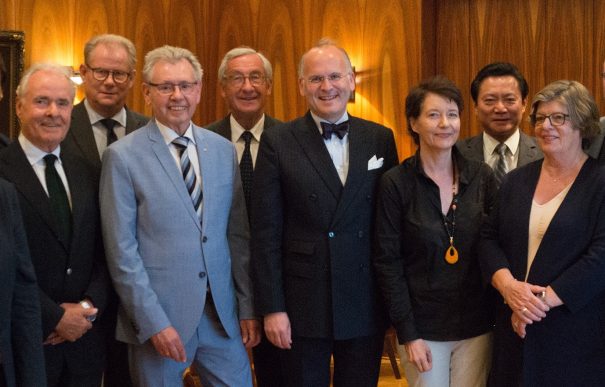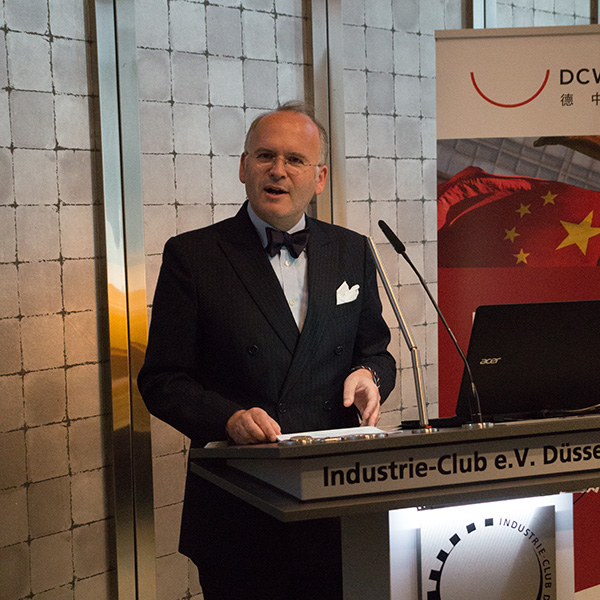China Speech 2019: On Rise and Fall
On 12 June 2019, Prof. Dr. Klaus Schweinsberg followed the invitation of the German-Chinese Business Association (DCW) in Dusseldorf and delivered this year’s China Speech. Among the numerous guests were also Mr. FENG Haiyang, Chinese Consul General, Professor Christiane Prange (Tongji University Shanghai), Andreas Schmitz, Chairman of the Supervisory Board of HSBC Germany, Harald Lux, Chairman of the Board of DCW, and Professor Dr. Ulrich Lehner, Chairman of the Supervisory Board of Deutschen Telekom.

In his speech, Klaus Schweinsberg drew some provocative comparisons between China and the West and discussed a “clash of systems”. Liberalism, democracy, and market economy are under pressure. For various reasons, China poses an enormous challenge, but first and foremost, it is a chance: a rising China forces Europe to finally learn her lessons.

The current development reflects changeover from European expansion to Chinese expansion. Prof. Dr. Schweinsberg observes certain parallels to Zheng He, an admiral of the Ming dynasty. He was the commander of the Chinese treasure fleet. With more than 317 ships and almost 30.000 crew, it was remarkably bigger than all the fleets of all the European powers combined. This made China the undisputed “ruler of the seas”, a trading nation, a force for order, and a hegemon. After the death of the Yongle emperor, China reoriented and focused on domestic affairs, and thus gave way to Europe’s rise on the world seas.
Now, 600 years later, China again left Europe behind in many respects, most obvious in the Belt and Road Initiative. China’s rise and Europe’s fall can be reflected in ten factors: intention, ambition, expansion, education, bureaucracy, rule, monitoring, surveillance, moral, and agility. It is important to note the fundamental difference between Confucian and Western rationalism, once described as an “adaptation to the world” vs. “domination over the world” by Max Weber. (Photos (c) DCW)
